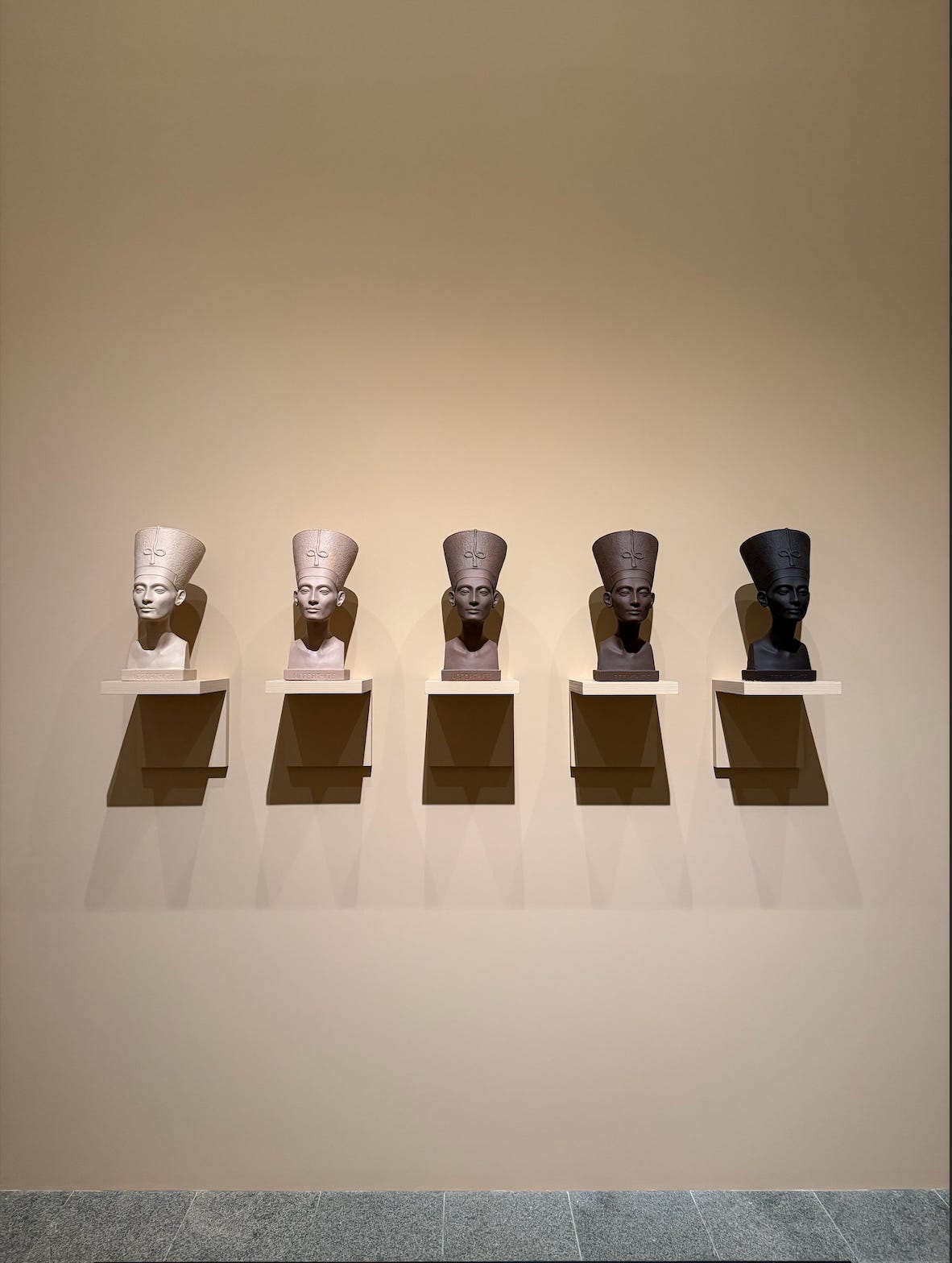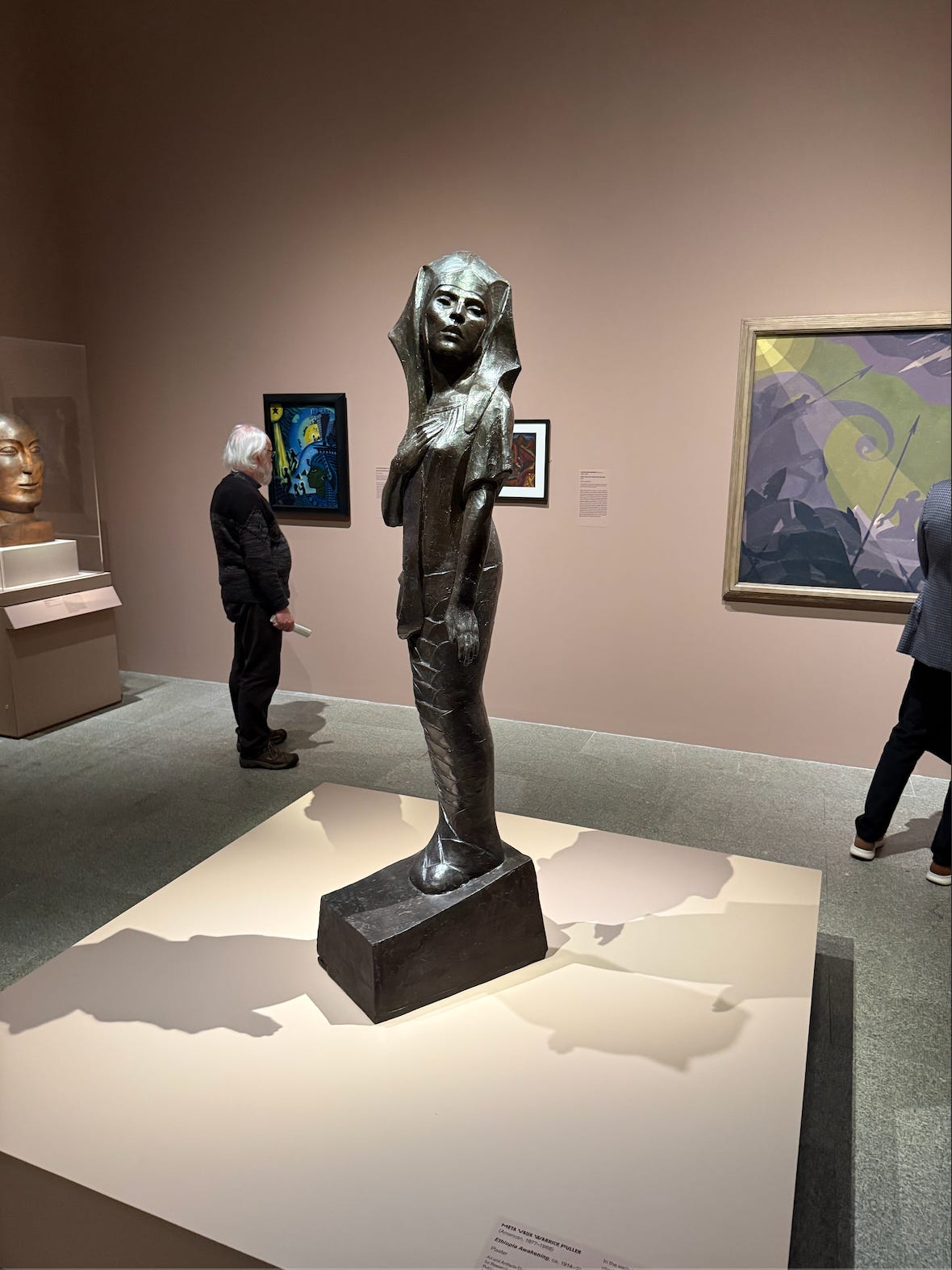In the words of Fredrick Douglas, “Greece and Rome–and through them, Europe and America have received their civilization from the Ancient Egyptians. This fact is not denied by anybody. But Egypt is in Africa…the ancient Egyptians were not white people; but were undoubtedly just as dark in complexion as many in this country who are considered genuine [African Americans].” From the first moment one enters the Metropolitan Museum of Art’s exhibition “Flight into Egypt: Black Artists and Ancient Egypt,” visitors are met with an explosion of cultural rumination and creation. The exhibition, now on display through February 17th, 2025, explores how black artists have engaged with the Ancient Egyptians through a variety of mediums, from scholarly articles to religious ceremonies to musical lyrics. Visitors can expect to be awestruck by 150 years of cultural and artistic creation by those of African heritage.
Beginning in the 19th century, African Americans began looking to the Ancient Egyptian civilization for inspiration and as evidence for rich African cultural identity. The movement began an effort to reclaim an identity stripped from the community through years of oppression in the West. Pictured below is Fred Wilson’s Grey Area (Brown version), where the artist places racial complexion front and center through a series of busts of Nefertiti, an Egyptian queen of the 18th dynasty.
The queen consort appears repeatedly throughout the exhibition, “royalty [of course] connotes power and cultural value after all.” Most astonishingly, curators display a disco ball made in Nefertiti's likeness from Beyonce’s private collection, highlighting a continued appetite from African American pop stars for work inspired by Ancient Egyptians. Pictured below is Meta Vaux Warrick Fuller’s Ethiopian Awakening. The plaster sculpture personifies the term “Ethiopia,” used to refer to the African continent in the early nineteenth century. The sculpture represents the global African diaspora adorned with a pharaonic nemes headdress. Art historians regard Ethiopian Awakening, a symbol of self-knowledge, as the first Afrocentric work of art.
Does the racial classification of Ancient Egyptians as "Black" or "Caucasian" hold significance? Even with uncertainty from the global community, the legacy has promoted a tremendous African cultural identity. Culture holds the power to unify a population. This capability is exemplified most vividly in the role of Ancient Egypt and its pivotal role in uniting the African diaspora to confront injustice.



